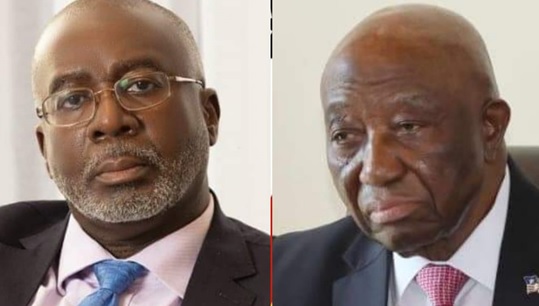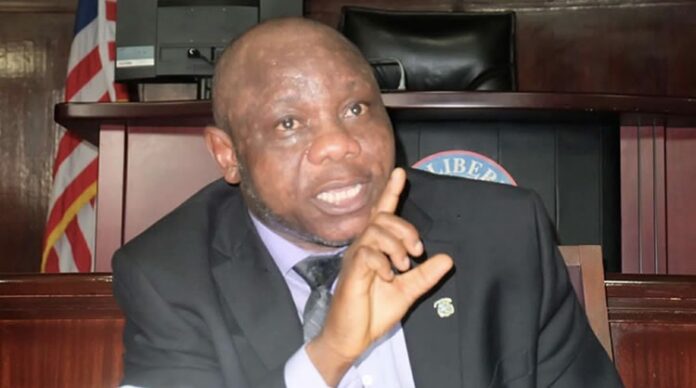MONROVIA – In an alarming demonstration of executive overreach, the House of Representatives has condemned the recent involvement of executive officers in a meeting organized by absentee lawmakers, signaling frustration over what appears to be executive interference in legislative affairs. The criticism was made public in a press release from the Speaker’s office, Cllr. J. Fonati Koffa on Wednesday, November 13, 2024. The statement emphasized that, as the branch of government responsible for coordination, the Executive should remain neutral and not engage in any actions that might be perceived as endorsing or supporting factions within the legislature.
According to the Speaker’s office, “The Executive Branch must avoid actions that could be perceived as taking sides in a budding constitutional crisis, which is far more consequential than a mere schoolyard dispute. It is essential to act decisively in upholding our constitutional democracy and the rule of law.” This pointed statement reflects growing concern within the House that Boakai’s administration, instead of promoting legislative autonomy and respect for institutional boundaries, is instead exacerbating a volatile situation by implicitly backing a faction within the House.
The issue has been simmering for weeks as a faction of lawmakers, calling themselves the “majority bloc,” continues to operate outside official legislative processes, challenging House leadership. On Tuesday, November 12, 2024, three senior officials from the Executive Branch attended a session organized by these lawmakers: Mo Ali from the Liberia Water and Sewer Corporation (LWSC), Internal Affairs Minister Francis Nyumalin, and Transport Minister Sirleaf Tyler. Their presence at this unsanctioned session, particularly amid a tense standoff within the House, has only intensified speculation that the executive branch is quietly aligning itself with dissenting lawmakers.
Observers note that this support from Boakai’s administration is more than symbolic. The majority bloc had previously summoned Nyumalin on November 5, 2024, to address questions on implementing the Local Government Law—a move led by Representative Ernest Manseah of Nimba District #4. Nyumalin, along with Ali and Tyler, complied with this summons, a decision that the House leadership views as compromising the constitutional boundaries separating executive and legislative authority.
In a democracy that prides itself on its checks and balances, the Executive’s implicit endorsement of a faction within the House raises serious questions about President Boakai’s commitment to constitutional principles. The Speaker’s office press release explicitly warned that continued executive support for actions contravening the Constitution could “ultimately endanger the stability of our democracy.” This admonition emphasizes a deeper issue: that Boakai’s presidency appears increasingly willing to sidestep constitutional norms to exert influence over the legislature.
Critics argue that Boakai’s executive overreach is creating a crisis of confidence in Liberia’s governing institutions, eroding public trust in the independence of the legislative branch. By supporting a faction within the House, Boakai risks creating a culture in which executive power is wielded not to preserve democratic governance, but to manipulate it. This approach not only undermines legislative integrity but also threatens the stability of Liberia’s political system as a whole.
The Speaker’s office press release concluded, “Liberia is our shared heritage and responsibility.” For many, this statement captures the growing frustration with an administration that seems more intent on consolidating power than respecting the fundamental tenets of democracy. With Liberia’s fragile democratic gains now seemingly at risk, it remains to be seen whether Boakai’s administration will respect institutional boundaries or if this executive incursion will continue to wear away the principles upon which Liberia’s democracy was built.







